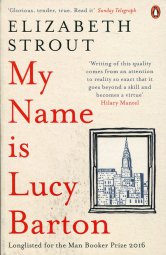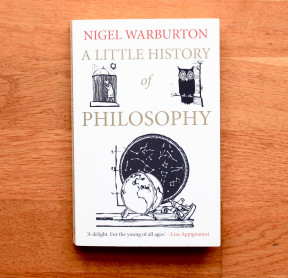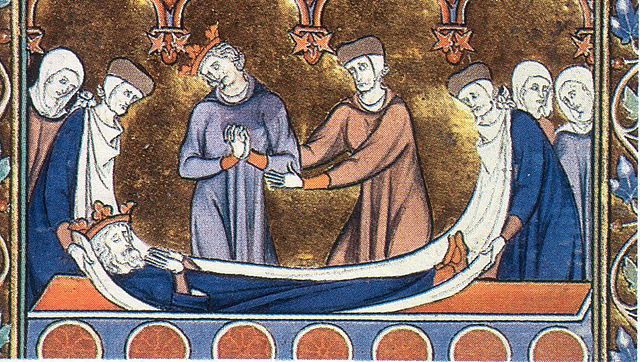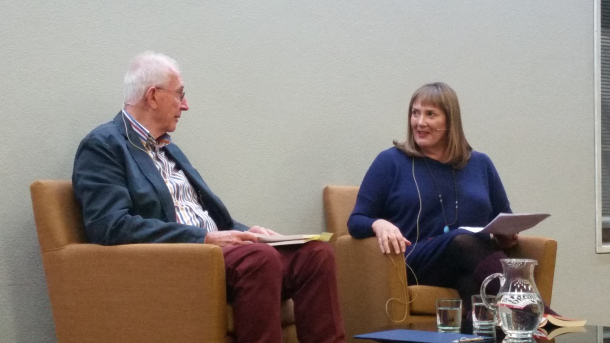I failed to post a review during February, so have three to make up for it:
“My Name is Lucy Barton” by Elizabeth Strout
My Name is Lucy Barton is an honest account of family and a true representation of how life and love can be so complicated and yet so simple. Strout’s tone is refreshing and unsentimental, and for me, that is both its strength and its weakness. I struggled to feel invested in what is essentially brief and largely uneventful. Strout’s strength, however, is creating an environment in which empathy is eminently possible.
“Lonely was the first flavour I hast tasted in my life, and it was always there, hidden inside the crevices of my mouth, remind me.” p41-2
“I have since been friends with many men and women and they say the same thing: Always that telling detail. What I mean is, this is not just a woman’s story. It’s what happens to a lot of us, if we are lucky enough to hear that detail and pay attention to it.” p28
The charm of this novel is in its little glimpses of human tenderness. Lucy shares those feelings we all have but are often too embarrassed or ashamed to admit. Lucy and her mother do not have an easy relationship. They are real because they are normal and mundane but complicated, like all of us.
“Reunion” by Fred Uhlman In the afterword to this novel, Rachel Seiffert’s phrase puts it perfectly: “His restraint is formidable”. Sometimes the most difficult thing for a writer to achieve is restraint, the tendency to embellish being too difficult to resist. Uhlman’s narrative is stripped back, leaving only what is essential. I found reading this very short novel to be an unusual challenge, simply because of its brevity. I had to deliberately slow my reading, so as not to skim past something important. It is imperative you pay attention to every word, or you’ll miss something delicate and urgent.
In the afterword to this novel, Rachel Seiffert’s phrase puts it perfectly: “His restraint is formidable”. Sometimes the most difficult thing for a writer to achieve is restraint, the tendency to embellish being too difficult to resist. Uhlman’s narrative is stripped back, leaving only what is essential. I found reading this very short novel to be an unusual challenge, simply because of its brevity. I had to deliberately slow my reading, so as not to skim past something important. It is imperative you pay attention to every word, or you’ll miss something delicate and urgent.
This book is about friendship, the essence of what it is to find another person with whom you can share, with whom you feel natural. And the fragile state of adolescence, on the brink of adulthood, but still so much the child.
“Just as I took it for granted that it was dulce et decorum pro Germania mori, so I would have agreed that to die pro amico was dulce et decorum too. Between the ages of sixteen and eighteen boys sometimes combine a naïve innocence, a radiant purity of body and mind, with a passionate urge to absolute and selfless devotion. The phase usually only lasts a short time, but because of its intensity and uniqueness it remains one of life’s most precious experiences.” p13
This is the state in which we join two sixteen-year-old boys. Full of potential, minds to be readily moulded… or taken advantage of.
A thin, at times imperceptible veil floats above Hans and Konradin’s friendship. Konradin’s parents shake hands with Hitler in a photo. Herr Pompetzski delivers a lesson on the “dark powers” at work everywhere. A schoolboy tells Hans to “go back to Palestine”.
This book can be read in a matter of hours. Remarkably swift, delicate and poetic, Uhlman’s style reminds me an equally short novel: A Whole Life by Robert Seethaler. It is, like Ulhman, Seethaler’s ability to hold back that makes the narrative so powerful. They refuse to dress up a story that can and will speak for itself, with its humble words and noble human intention.
“A Little History of Philosophy” by Nigel Warburton Does what it says on the tin. From Socrates through to Alan Turing and Peter Singer, bitesize chapters relate the history of philosophy from its birth to present day. You couldn’t call it a full history, since it focuses primarily on Western philosophy. Nevertheless, it is a lovely introduction to philosophy for students or for anyone with an interest in the subject. These philosophical episodes also coalesce with pivotal moments of political and scientific change: Rousseau in the French Revolution, Charles Darwin’s theory of evolution, Karl Marx theorising Communism, Alan Turing cracking the Enigma code. Joining the philosophical dots through history helps to paint a picture of humanity and continued attempts to improve ourselves.
Does what it says on the tin. From Socrates through to Alan Turing and Peter Singer, bitesize chapters relate the history of philosophy from its birth to present day. You couldn’t call it a full history, since it focuses primarily on Western philosophy. Nevertheless, it is a lovely introduction to philosophy for students or for anyone with an interest in the subject. These philosophical episodes also coalesce with pivotal moments of political and scientific change: Rousseau in the French Revolution, Charles Darwin’s theory of evolution, Karl Marx theorising Communism, Alan Turing cracking the Enigma code. Joining the philosophical dots through history helps to paint a picture of humanity and continued attempts to improve ourselves.
The tone of the chapters evolves as you read. Warburton is almost flippant and comedic at the start, when discussing Socrates. But this may well be a reflection of the ancient historical accounts we have access to. The erosion of time has made them into characters, rather than people. You cannot help but find Pyrrho to be an amusing character. Pyrrho was an early sceptic who believed we can know absolutely nothing. Our physical senses were likely to mislead us, so he therefore ignored them entirely.
“So, whereas most people would take the sight of a cliff edge with a sheer drop as strong evidence that it would be very foolish to keep walking forward, Pyrrho didn’t … Even the feeling of his toes curling over the cliff edge, or the senstation of tipping forward, wouldn’t have convinced him he was about to fall to the rocks below. It wasn’t even obvious to him that falling on to the rocks would be so bad for his health. How could he be absolutely sure of that?” p17
As the book moves further toward the present, the tone becomes more sincere and the questions more relevant for a modern reader. Will computers be able to achieve consciousness, for example? Is abortion moral? Reading this book is like studying a unit called “Introduction to Philosophy,” with lectures from a university professor (which of course they are). Studying Socrates and Pyrrho give you a flavour of philosophical thought, but their insights are unlikely to impact on modern day life. Warburton fulfils his role as teacher by introducing an increasingly provocative style that encourages the reader, or student, to explore and question.
Share this:




